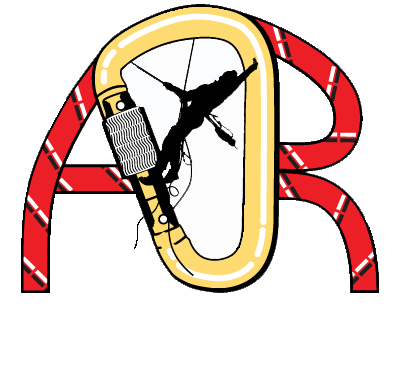preparation is key to a great week…
There are a few things you can do to prepare for a great week at AccessRULES. Please follow these steps:
- Make sure you’re eligible. Read our pre-requisites here. You’ll be asked to sign a few statements of physical condition and provide medical clearance if necessary.
- Hydrate, hydrate, hydrate. Rope access is a physical activity. You’ll start off in the classroom but you’ll find yourself on the ropes before lunchtime. We’re located in the Deep South, so the humidity will likely be high, and the temperature… well, you know, it gets hotter than you know what during the spring, summer and fall. Start your hydration the night before class starts by drinking plenty of water (it won’t hurt to throw some electrolytes down your neck, too). We have water here, but you’ll have to bring electrolytes if you want them. Continue to hydrate at night throughout the week.
- Get plenty of rest. You’ll be working hard during the day, and we’ll give you some homework at night. Try to relax at night and let your body recover.
- Plan for sore muscles. Oftentimes technicians start to feel sore around day two. If you’re new to this, your arms will feel the worst. That’s because you’ll be learning new techniques using muscles that don’t do much of what you’ll be asking them to do. It’s normal. Ice works well. So do topical gels like Biofreeze. You might want to consider a compression sleeve for your elbows. a nice hot soak in a bathtub with Epsom salts seem to work for me.
- Wear comfortable clothing. So, it will probably be hot. Your best bet is to wear some pants and a lightweight shirt. We don’t recommend shorts because you’ll be more exposed to abrasions from the ropes, structures, etc. A pair of tennis shoes is fine, you can wear any comfortable closed toe shoe. Bring a sweatshirt in the winter, but you’ll probably take it off during the physical part of the course. You might want to think about some sort of head covering like a bandana. I find it soaks up sweat and makes the helmet a bit more comfy.
- Avoid injuries. Jewelry, baggy clothes and long hair can get caught in stuff. Try to avoid wearing these things. Gloves are highly recommended. We have leather gloves available for purchase for about $40. Otherwise, it great if you bring some sturdy gloves.
- Follow the rules. Our training centers are considered a live work place. Therefore, we have rules in place to prevent your injury. Please follow them. If you don’t, we’ll have a conversation with you and we hope your behavior improves. If not, we reserve the right to ask you to leave. Your employer may have requested additional PPE to be worn during training, please honor their request.
- Bring your lunch. We have refrigerators and microwaves available for your use. We don’t usually break for lunch during Assessment day, so bring some snacks. We’ll buy lunch around 2 pm on Assessment day.
upgrades and re-certifications
You should be familiar with the process if you’re upgrading or renewing your certification. Don’t be that guy or gal. Yes, you still need to prepare. In addition to the stuff above, make sure you pay attention to the following advice.
- Logbooks, logbooks, logbooks. Make sure it’s complete. Maybe I need to back up. Make sure you have one, and that it is complete. Our trainers will review your logbook at the start of class. If it’s not up to snuff, they will give you advice. Take it. The last thing you want is an Evaluator or Assessor to tell you that you cannot participate in an Assessment day because of your crappy logbook. I’ve done it, and I’ve seen it done. IRATA requires all upgrade and renewal candidates to submit their logbooks to the Training Member Company prior to the start of class. If we don’t receive and approve your IRATA logbook prior to the start of class, you won’t be confirmed and you will not be allowed to participate in the course. You can read more here.
- Read the guidance. SPRAT and IRATA each have guidance about rope access in the public domain. Read it before you show up to class. In fact, click here to download it. There is no reason you should show up to class without current knowledge of your job, whether you’re upgrading or renewing your certification.
- Practice, practice, practice. Both SPRAT and IRATA have expectations that you already know how to complete the techniques required of your current level. If you can, practice these maneuvers. Our AccessPLAY is a great resource for this. Take advantage of it. If you can’t practice, write down the steps of each maneuver so it’s fresh at the start of the course.
